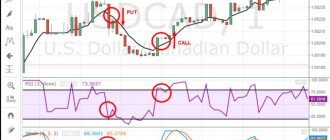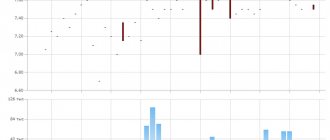Author: Yango.Pro
Over the first 8 months of 2021, Russian private investors invested almost 340 billion rubles in bank bonds on the primary market. This is a record amount over the past four years. We’ll figure out how things are in the banking sector today, how the business model of banks will change due to changes in the rules for issuing consumer loans, why banks are so actively attracting “physicists” to buy their own securities, and what you need to consider if you decide to buy bank bonds and take assume banking risk.
READ IN THE ARTICLE: ✔ What is happening in the banking sector?
✔ New rules for issuing loans: what has changed?
✔ Why do banks need bonds? ✔ How to analyze banking risks and what to consider when buying bank bonds – analyst’s opinion
© When using site materials and quoting - a link with a URL is required
What is a bond
It is a debt security issued by the issuer (borrower) to raise borrowed funds.
He undertakes to pay the investor (creditor) the face value of the bond and interest for the use of funds within a certain period of time. Depending on the issuer - the person issuing bonds, one can distinguish state, municipal and corporate bonds.
According to the form of payment, there are interest-bearing, discount, and amortizing bonds.
How bonds work
Interest-bearing, otherwise coupon, bonds are issued at par value. Interest is periodically paid on them - coupon income. The interest rate can be fixed or floating. The floating rate can be linked to the interbank rate (LIBOR, EURIBOR, MOSPRIME).
Discount bonds are generally zero-coupon. They are offered for purchase below face value - with a discount that includes a percentage for the use of resources. As the maturity date approaches, the discount decreases and the value of the paper approaches its face value.
Amortizing bonds are sometimes used. They periodically pay part of the principal debt and coupon income on the balance.
What are they needed for
This tool for attracting debt financing is an alternative to a bank loan. Bonds are traded on the stock market. This eliminates the bank's margin and makes it possible to attract cheaper loans directly from investors.
For investors, buying bonds is an alternative to another banking product – a deposit, and also implies a higher return. At the same time, bonds carry much lower risks of changes in value than shares and other underlying assets and derivatives.
Profitability and timing
So you issued bonds. And you sold them to some investor (or a whole bunch of buyers), agreeing to pay a certain percentage every year, six months or quarter. For example, 7% per annum. This is called a coupon.
To calculate how much you can earn on bonds, you need to know the size of this coupon. For example, the par value of a bond is 1000 rubles, 7% of the par value is paid every year. Therefore, you can earn 70 rubles per year from the bond.
The term of the bond can vary - companies usually issue 5-7-year bonds, the state - 10-year ones, such as US Treasury bonds. There are both one-year and 30-year bonds. You need to look at the offer.
Let's return to our example. You organized the issue of a bond - i.e. They issued the paper on the stock exchange and sold the entire issue for 1,000 rubles apiece. Let's say the bond matures in 5 years. It is quite easy for an investor to calculate how much he can earn on a bond if he purchases this security at the moment of issue at par. Just add up all the bond's yield over 5 years. If the coupon is 7% per annum, then the profit for 5 years will be: 70 * 5 = 350 rubles.
Whether it’s a lot or a little – think for yourself. But keep in mind that the higher the coupon, the less reliable the bond. Usually, due to high profitability, companies try to compensate for possible risks and attract investors who are willing to put up with possible losses in the name of greater profits.
How to make money on bonds
Bonds allow you to earn money both through coupon income and when buying (selling) based on changes in the market price.
Main factors influencing the price of bonds:
- The amount of coupon income.
- Length of period until maturity.
- Level of market interest rates. In Russia, it depends on the key rate of the Central Bank. When it decreases, previously issued bonds increase in price, and new ones are issued at lower rates, and vice versa.
- Conjuncture and situation in the financial market. For example, during crisis situations in other segments, investors prefer to purchase bonds.
- The financial condition of the issuer and its ability to fulfill obligations.
Bonds have a yield to maturity. This is the internal rate of return (IRR). In simple words: how much the investor will earn from the purchase to the time of repayment (in percent per annum). The indicator takes into account the profitability of both the coupon and price changes.
The lower the market value of bonds, the higher the yield to maturity, and vice versa.
How much can you earn
The yield depends on the quality of the issuer and the maturity period. Government securities are considered the most reliable. Thus, the issue of federal loan bonds for the population (OFZ-N) issued by the Ministry of Finance dated 09/02/18 with a maturity of up to 3 years has a coupon yield of 6.5 to 7.35% per annum.
Purchasing the most profitable municipal debt securities maturing in 2020-2021 will give 8.5-9% per annum, and some - up to 10%.
The yield on ruble bonds of blue chips with a maturity of 3–5 years is 7.7–9.25% per annum. By purchasing bonds of second-tier companies you can earn 9–11% per annum. The best indicators in terms of profitability are demonstrated by third-tier corporate bonds - from 15% per annum and above.
Is it profitable to buy
Bonds are a reliable, conservative instrument of passive investment with a certain and understandable return. The main goal when purchasing them is diversification and stable savings.
That is why pension funds place their main assets in bonds. They are widely used for diversification by other institutional investors: banks, management companies, mutual funds, their Western analogues - hedge funds, insurance companies. And, of course, private investors prefer such a purchase.
Is it possible to buy on IIS?
Can. It is possible to purchase bonds of Russian issuers on the Moscow Exchange on the IIS, and Eurobonds on the Moscow and St. Petersburg exchanges.
Where can I see the list of products available for purchase?
First of all, in the broker's trading terminal. In Russia there are two old sites dedicated to bonds - Rusbonds and Cbonds. I learned many nuances about buying bonds and their dosage there.
There are less popular resources – smart lab, finanz, tradingview, etc.
How much does 1 Eurobond cost?
Eurobonds are an international type of bond issued by issuers in different countries and available to investors in different countries. They are offered by many large domestic companies. But the purchase is not cheap: the minimum price of a Eurobond on the Moscow Exchange is 1000 USD.
Prospects for the banking sector: what to expect?
At the end of October, the rating agency Moody’s published a fresh report on the state and prospects of the banking system in Russia, changing its outlook for the industry from positive to stable. The main problem for banks, which will hold back improvements over the next 12-18 months, is sluggish economic growth in the country, agency analysts stated.
“Russia continues to face a number of economic challenges, which is one of the reasons why we cut our real GDP growth forecast for the country to 1.2% from 1.6% in 2021,” said Olga Ulyanova, senior credit manager at Moody's. — For 2021, the growth potential also remains extremely weak, about 1.5%. Despite this, the operating environment for banks will be supported by accommodative monetary policy , a relatively stable exchange rate and rising government spending.
the share of problem bank loans in the system for the next year and a half at just below 10%. A large share of the banks' legacy problems that arose during the 2014-2016 economic downturn (mainly in the corporate sector) will continue to remain on the banks' balance sheets. At the same time, the costs of covering problem loans will be stable, since they are well covered by reserves for possible losses.
ACRA analysts also agree that the banking industry as a whole is in a stable state . The dynamics of bank assets is supported by the growth of lending to the population. Asset quality will remain stable in most lending segments. And the situation with liquidity and capital in the industry is quite comfortable.
Bank assets have , in principle, grown steadily since 2017, according to NAFI calculations. For example, over the year from January 1, 2021, assets and, accordingly, liabilities in the sector increased by RUB 8,892 billion. The volume of loans in banks' liabilities increased by 22% over the year and reached RUB 14,872 billion. by the beginning of 2021. The volume of attracted deposits from individuals during this period increased by 10%.
At the same time, the state's share in the banking sector has increased significantly in recent years. According to the results of the first half of the year, 73% of assets in the banking market were under state control. On the one hand, this means that there are more banks in Russia that can count on priority support from the state. On the other hand, the economy and regulation are reducing the space for the development of small and medium-sized banks, which are actively losing their positions, ACRA analysts emphasized.
Sources: Central Bank, ACRA
Where can I buy bonds?
This can be done through a broker on the stock exchange, bond mutual fund or ETF.
Independently on the Moscow Exchange
To purchase bonds, you need to open a brokerage or individual investment account (IIA) with a broker and gain access to the exchange through his trading terminal.
Broker fees on the Russian market are usually:
- Commission for transactions is 0.025–0.05% of turnover.
- Depository services – from 0 to several hundred rubles per month.
- Service fee – from 0 to several hundred rubles per month.
As part of the mutual fund
There are bond mutual funds and mixed investments. A mutual fund is a fund without the formation of a legal entity as part of a management company. When purchasing a share, the investor transfers the funds to trust management. A share is a security that certifies the owner’s right to part of the fund’s property.
When investing in mutual funds, you should take into account the high commissions of the management company. This is a premium when purchasing a share, a discount on redemption, and an annual management fee, which can be up to 5%. In addition, shares can only be sold to the manager. That is, they do not have the liquidity of an exchange asset. The cost of a share can range from several to tens of thousands of rubles.
ETF
This is an exchange-traded investment fund - an analogue of a mutual fund. Only ETFs are usually joint-stock and their shares are traded on an exchange. The ETF buys bonds, and the investor buys shares of the fund. A manager is not required for operations with shares. Accordingly, there are no commissions for buying/selling by definition.
Most ETFs are index ETFs. They take as a basis an existing one or create their own index, for example, a pool of bonds. And they strictly follow it when purchasing, filling their portfolio in accordance with the index. This simplifies management. As a result, ETF commissions, unlike mutual funds, amount to tenths or hundredths of a percent per year.
The ETF portfolio is transparent and pre-determined. An investor can view its composition at any time on the website of the fund or management company. The mutual fund publishes data once a quarter. Exchange-traded fund shares are absolutely liquid: buying or selling is possible at any time. The cost of an ETF share can be several hundred rubles.
Where is the best place to buy
For passive investing, the best option is ETF. Options for purchasing shares of Russian and international exchange-traded funds:
- on the over-the-counter market through a market maker, on the website of the fund or management company;
- on the stock exchange through a broker;
- through mobile applications.
You can purchase mutual fund units through the website of the Russian management company.
For experienced investors who want to earn money intellectually, of course, the best option is access to the exchange through a broker and independent operations - buying, selling, exchanging, etc.
Best brokers
All brokers operating on the Russian stock market are reliable companies that comply with the requirements of the regulator. Essentially, the main function of a broker is to provide you with access to a trading platform. Therefore, in the question of how to choose the right broker, you can safely put the profitability of tariffs at the forefront.
Opening of Promsvyaz by Rick BKS Keith Tinkoff Finam
One of the mastodons of the market. Excellent web portal, very low commissions and adequate support. I recommend!
Investment department of a famous bank. There are no particular advantages, but there are no disadvantages either. Average.
One of the very first Russian brokers. The commissions are high, but there are interesting auto-following strategies.
Another very large broker. Good support and low commissions are their strong point.
Small but reliable broker. It is great for beginners because it does not impose its services and the commissions are very low. I recommend.
The youngest broker in the Russian Federation. There is a cool app for investors, but the fees are too high.
The largest investment company in Russia. The largest selection of tools, your own terminal. Commissions are average.
Kinds
Municipal bonds are classified according to their characteristics. Papers differ in the following characteristics:
- Number of borrowing purposes: single or multi-purpose.
- Purpose content: to finance budget expenses or to implement socio-economic programs.
- Nature of use of financial resources: current or investment.
- Type of budget expenditures: environmental protection, culture, healthcare, social policy, etc.
- Source of funds for repaying bonds: current revenues, special revenues, debt refinancing, intergovernmental transfer, combined sources.
How to choose paper to buy
Main selection criteria when purchasing:
- profitability;
- reliability, creditworthiness of the issuer;
- liquidity, volumes of securities transactions.
The balance of selection criteria depends on the investment goals and investment strategy.
The main passive strategy is “buy and hold”. In this case, it is advisable to purchase securities of highly reliable issuers with maximum profitability. These are government and municipal bonds, blue chips and 2nd tier securities with a rating, for example RAEX.
Active management and moderate strategy with the goal of creating a balanced portfolio. Without going into the nuances of such strategies, I will note that in order to increase profitability, third-tier companies are also included in such a portfolio. Before purchasing, an analysis of the creditworthiness of the issuers is required.
An aggressive speculative strategy with the goal of obtaining maximum profitability from the difference in quotes. To implement it, it is necessary to analyze and find undervalued, mostly “junk” bonds with growth potential.
Is income tax paid on bonds?
Income tax is paid on coupon income and on the price difference, but in different tax periods.
When is it better to buy bonds: before or after coupon payment?
Coupon income is an object of taxation in the reporting period. Therefore, it is more profitable to purchase after paying the coupon. Then the previous owner will receive income, and the price will decrease by a comparable amount. That is, instead of coupon income, we will receive additional current income (quote difference). And according to it, the object of taxation will arise only during the reporting period of paper sale.
What consequences
New regulation will force banks to refocus on the corporate sector again. According to Gazprombank forecasts, the growth of corporate loans will accelerate by approximately 4 percentage points. The net additional growth of the total loan portfolio will be about 600 billion rubles. (12% of the current ruble liquidity surplus) over a 12-month horizon.
In addition, the shift from high-margin products in retail to higher-volume loans in the corporate segment will have a positive effect on the average net interest margin of the sector (about 5 bps, according to Gazprombank estimates).
In the long term, this will have a positive impact on profitability and, as a result, on dividends of banks with an active dividend policy (such as Sberbank and VTB, for example).
Another advantage of the transition from retail risk to corporate risk (which in itself is less capital-intensive) is the positive effect on the H1.0 coefficient for banks, that is, regulatory capital standards .
Taxation of Eurobonds for individuals
Personal income tax of 13% is paid on coupon income, differences in quotes and exchange rate differences. When working through a foreign broker, you must report in Form 3-NDFL to the tax authority at the place of registration and pay tax. Russian brokers perform the function of a tax agent.
Tax deductions are provided:
- when purchasing bonds through IIS;
- if you own the paper for more than 3 years, no tax is paid;
- Losses from previous years are taken into account when calculating tax.
Why does the state release them?
- To cover the government deficit. budget. There is a shortage of financial resources every year, so to compensate for it, the state issues medium- and long-term bonds.
- To eliminate a temporary budget deficit, which occurs when the state has spent part of the budget, but taxes or any other income has not yet entered the treasury (also called a “cash gap”). From time to time there is a budget deficit (usually at the end/beginning of a quarter), and short-term bonds are issued to neutralize it.
- To finance government projects. For example, targeted bonds that are issued for the implementation of specific projects. Federal highway, development of some sector of the economy, and so on.
- Raising funds to pay off debt on other securities. Otherwise it is called refinancing.
- In special cases, states issue bonds in order to pay for government work. order.
Bonds are securities issued by a body authorized by the state. Its issue sets the goal of attracting funds needed in the budget. In the history of the Russian Federation over the last century, before the transition to a democratic society, only government bonds were issued (however, even then they had varieties). These debt securities play an important role in the economy of any country. Their share usually makes up about half of the total amount of bonds.
Which is better – bonds or dividend stocks?
Speculative transactions with shares are more profitable, but also riskier. Interest on bonds is usually higher than dividends. Bonds better compensate for unsystematic risk associated with the market environment. Their quotes are much more stable.
They are also less vulnerable to unsystematic risk per issuer: first, the company must pay off creditors, and only then with shareholders.
However, both instruments are important for diversification and balanced portfolio in terms of profitability and reliability.
Existing risks
All types of municipal bonds are considered low-risk investments, and the Central Bank of the Russian Federation positions them as “high-quality” assets.
Strictly speaking, the guarantor here is a representative of the subject of the Russian Federation - the municipality, administration, local government bodies.
The bankruptcy of even a small region or city will cause irreparable damage to the image of the entire country, reducing its attractiveness for foreign investors.
Therefore, in case of default (or technical default), the issuer will receive support from the state budget: a loan tranche, a subsidy.
Important: The reliability of the Defense Ministry is partly nominal, but it is not politically beneficial to the country. History is familiar with cases of technical default of securities of large regions during the crises of 1998 and 2008. Therefore, the profitability of MO is always higher than that of GKOs or OFZs.
In practice, only depressed regions of the Russian Federation with a low credit rating are exposed to potential risk. But even in this case, debt obligations will be fulfilled.
Before deciding on a release, it is necessary to analyze the existing risks:
- Credit rating. The reference is only to reputable rating agencies - ACRA, Expert RA or the Big Three - Fitch, Moody's, S&P. The rating is not assigned to every region, but if the issuer receives AA or higher, the investment is 100% reliable.
- Study the financial condition of the region. For a general assessment, just refer to the corresponding ratings, for example, on Reuters.
The yield on securities from prosperous and regressive regions is approximately the same, although the latter are forced to increase coupon rates. Therefore, it makes sense to conduct analytics and select bonds of reliable municipalities.
Top 10 most reliable
I collected the most liquid bonds with the maximum volume of transactions for the week by 10/18/19.
| Release | maturity date | Yield to maturity, % per annum. | Trading volume per week, million RUB | In circulation, million RUB |
| RZD-001P-05R | 01.02.2033 | 7,28 | 1 722,54 | 20000 |
| MTS-001P-10 | 25.06.2025 | 7,22 | 1 539,29 | 15000 |
| Rosneft-9-bob | 28.11.2024 | 7,29 | 1 203,11 | 20000 |
| GPB-001R-11R | 01.07.2024 | 7,31 | 1 026,43 | 10000 |
| GazpromCapital-BO-001R-02 | 11.07.2024 | 7,18 | 744,79 | 15000 |
| Gazprom capital-4-bob | 15.02.2028 | 7,23 | 650,37 | 10000 |
| Russian Post-001Р-02-bob | 11.05.2027 | 6,45 | 512,39 | 5000 |
| BKE-001R-02-bob | 23.04.2022 | 7,35 | 506,62 | 15000 |
| IKS 5 Finance-001P-06-bob | 07.09.2034 | 7,23 | 504,02 | 10000 |
| RZD-001P-07R | 26.05.2033 | 7,11 | 494,14 | 10000 |
Why does a private investor need this?
Simply put, what can bonds do for me? And it’s very simple - you can make money from it. Any individual can buy government bonds, and thereby become a creditor of the state. Moreover, if you approach it head on (you can always do stupid things), it will always be more profitable than a bank deposit.
Government bonds are the most reliable instrument for investing personal funds. You can only lose them if the state itself goes bankrupt, which is considered extremely unlikely; it is more likely to happen to another bank. So this instrument is suitable for savings investments.
The downside is that you need to figure out how it all works, and not everyone wants to do this. But it seems you are not one of them, since you are reading this on our website. You can buy bonds from any broker by opening a brokerage account.
Top 10 most profitable
Buying these securities demonstrates the highest profitability. The bonds are in circulation, transactions are taking place on them, and the companies are not in default.
| Release | maturity date | Yield to maturity, % per annum. | In circulation, million RUB |
| Opening Holding-3-ob | 17.09.2027 | 578 437,10 | 7000 |
| FC Mercury-1-ob | 28.11.2019 | 4 472,30 | 380 |
| SZHI-1-bean | 14.12.2021 | 750,82 | 11000 |
| Opening Holding-2-bean | 20.04.2028 | 612,30 | 7000 |
| Rosbank-1-25-bob | 28.07.2025 | 394,44 | 6000 |
| Financial management-1-about | 24.06.2020 | 242,15 | 500 |
| Opening of Holding-BO-P01 | 26.05.2032 | 235,95 | 35000 |
| Main road-6-about | 22.11.2028 | 195,45 | 8172,92 |
| Ashinsky Iron and Steel Works-1-bob | 17.06.2024 | 170,92 | 1000 |
| DeloPorts-1-about | 14.11.2025 | 125,11 | 3000 |
Let's sum it up
Bonds are the oldest and well-proven financial instrument, which should not be neglected by any investor. The benefits speak for themselves:
- Minimal risks. Bonds are more reliable than any other investment option. Loss of profitability is possible only in the event of bankruptcy of the issuer.
- Information about the issuer and the specific issue is transparent. The risk of default can be assessed in advance.
- A fixed return schedule, in most cases known in advance, reduces market risks to a minimum and allows the investor to plan cash flows.
- Wide selection of specific investment instruments.
- Preferential tax system.
- Guaranteed stable profitability, exceeding rates on bank deposits.
These advantages allow us to consider bonds as the basis of any investment portfolio.









